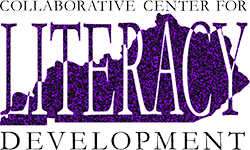
Reading Recovery is a short-term intervention for first graders having extreme difficulty with early reading and writing. Specially trained teachers work individually with students in daily 30-minute lessons lasting 12 to 20 weeks. After a full series of lessons, about 75% of these formerly lowest students reach grade-level standard.
Reading Recovery is based on research suggesting that intensive, high quality intervention during the early years of school is the most productive investment of resources. Researched and developed by Dr. Marie Clay, Reading Recovery provides a supplementary model of instruction for children at-risk in their second year of primary (first grade).
The Collaborative Center for Literacy Development supports the implementation of Reading Recovery in districts where reading levels are low. Districts are assisted with the identification and assessment of literacy needs, professional development and coaching.
Visit the Reading Recovery Council of North America website
Dr. Lindy Harmon, is the Director of the Reading Recovery Center and a Reading Recovery Trainer. She provides development in Reading Recovery for Kentucky’s primary teachers.
Heather Asher serves as the Administrative Assistant at the Reading Recovery Center and can be reached at 859-257-7859.
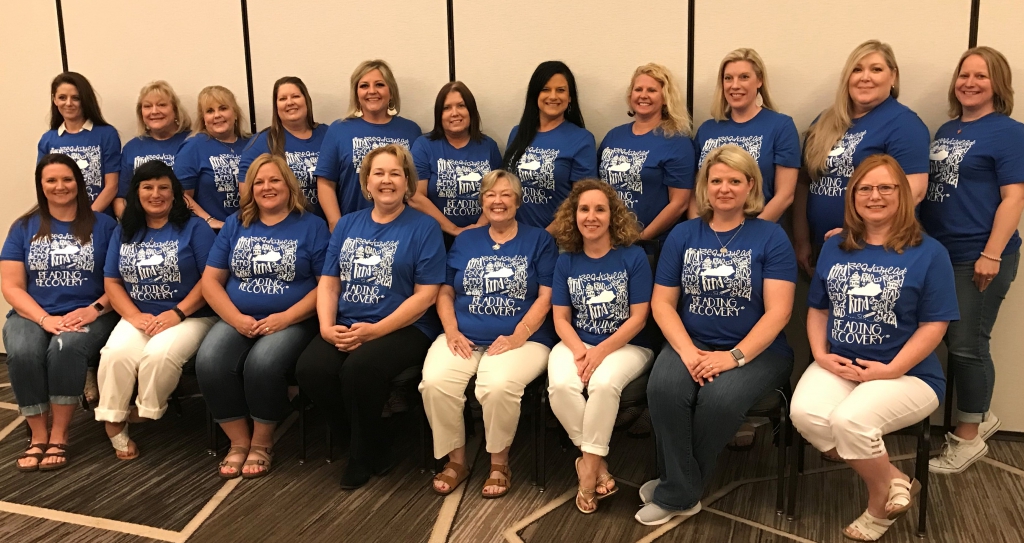
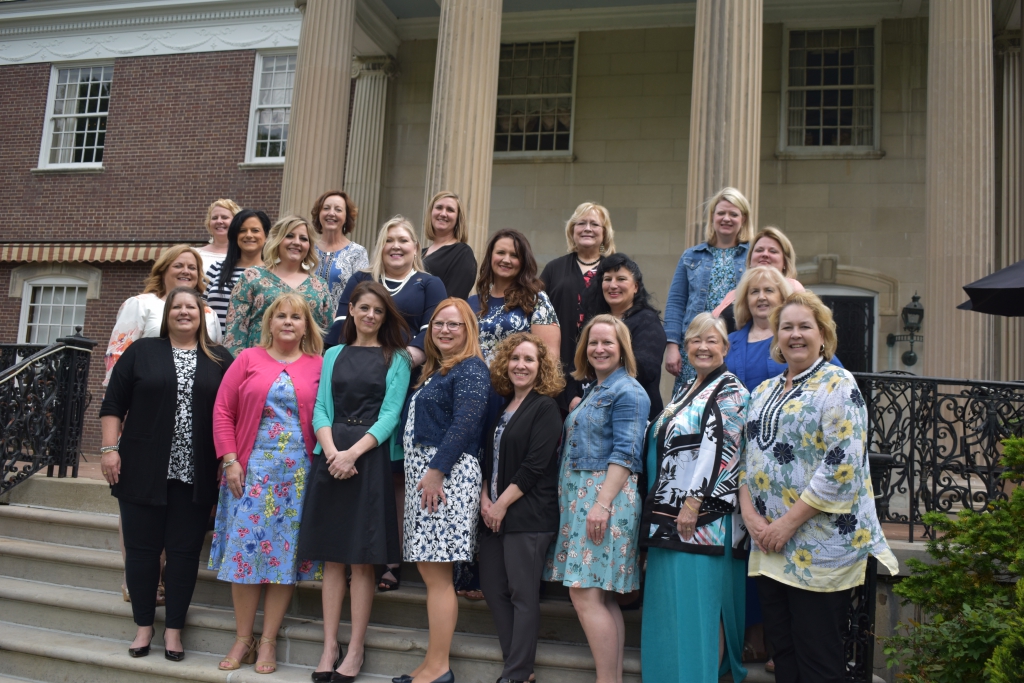
Teacher Leaders
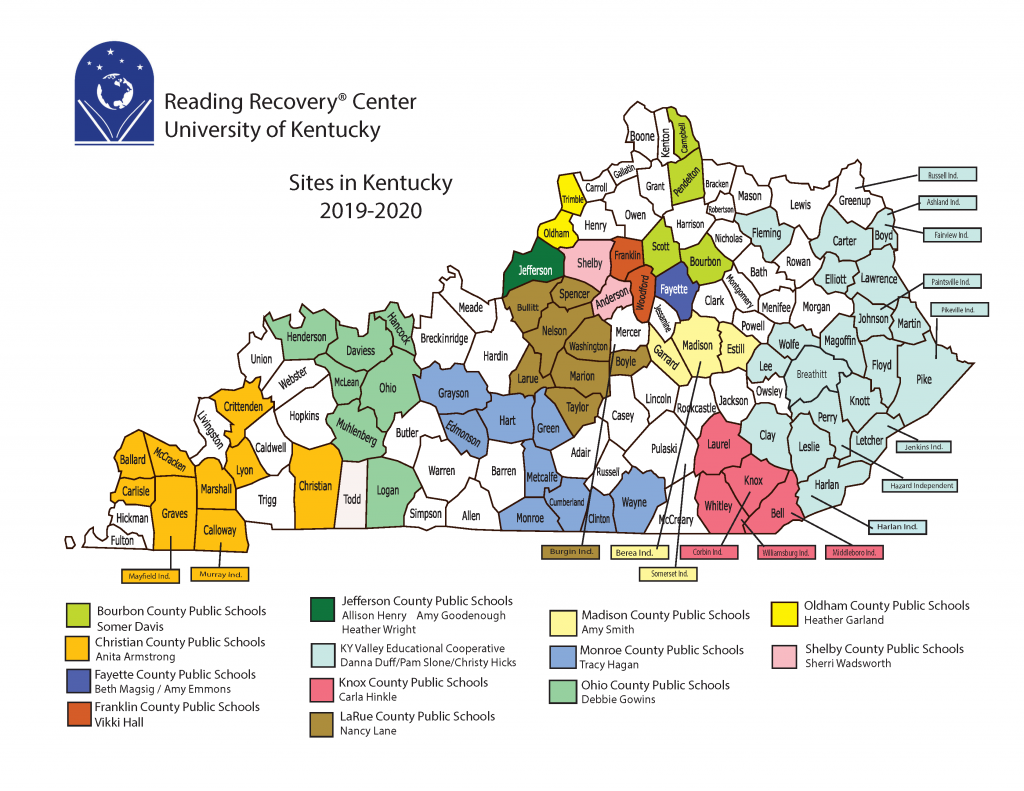
| Teacher Leader | School District Served | Training Site |
|---|---|---|
|
Somer Davis [email protected] 859-987-2180 |
Bourbon, Scott, Pendleton, Campbell | Bourbon County |
|
Anita Armstrong [email protected] 270-887-7190 |
Ballard, Calloway, Carlisle, Christian, Crittenden, Graves, Lyon, Mayfield Independent, Marshall, McCracken, Murray Independent | Christian County |
|
Beth Magsig [email protected] 859-381-4310 |
Fayette | Fayette County |
|
Amy Emmons [email protected] 859-381-4268 |
Fayette | Fayette County |
|
Vikki Hall (Interim TL) [email protected] 502-320-9513 |
Franklin, Woodford | Franklin County |
|
Amy Goodenough [email protected] 502-485-8223 |
Jefferson | Jefferson County |
|
Allison Henry [email protected] 502-485-3053 |
Jefferson | Jefferson County |
|
Heather Wright [email protected] 502-485-8320 |
Jefferson | Jefferson County |
|
Danna Duff [email protected] 606-436-3161 ext.5089 |
Breathitt, Hardan, Hardan Independent, Hazard Independent, Jenkins Independent, Lee, Letcher, Knott, Perry, Wolfe | Kentucky Valley Educational Cooperative |
|
Christy Hicks [email protected] 606-436-3161 ext.5089 |
Carter, Clay, Floyd, Harlan, Leslie, Paintsville Independent | Kentucky Valley Educational Cooperative |
|
Pam Slone [email protected] 606-436-3161 x5089 |
Floyd, Johnson, Martin, Magoffin, Paintsville Independent, Pike, Pikeville Independent | Kentucky Valley Educational Cooperative |
| Ashland Independent, Boyd, Carter, Elliott, Fleming, Fairview Independent , Lawrence, Russell Independent | Kentucky Valley Educational Cooperative | |
|
Carla Hinkle [email protected] 606-546-3496 ext. 1117 |
Bell, Corbin Independent , Knox, Laurel, Middlesboro Independent, Whitley | Knox County |
|
Nancy Lane [email protected] 270-358-4111 |
Boyle, Bullitt, Burgin Independent, Larue, Marion, Nelson, Spencer, Taylor, Washington | Larue County |
|
Amy Smith [email protected] 859-200-0296 |
Berea Independent, Estill, Garrard, Madison, Somerset Independent | Madison County |
|
Tracy Hagan [email protected] 270-487-6472 |
Clinton, Cumberland, Edmonson, Grayson, Green, Hart, Metcalfe, Monroe, Wayne | Monroe County |
|
Debbie Gowins [email protected] 270-274-3462 |
Daviess, Hancock, Henderson, Logan, McLean, Muhlenberg, Ohio | Ohio County |
|
Heather Garland [email protected] 502-241-0439 |
Oldham, Trimble | Oldham County |
|
Sherri Wadsworth [email protected] 502-633-3452 |
Anderson, Franklin, Shelby | Shelby County |
Professional Learning Model
A highly qualified teacher makes a difference in student outcomes, especially for children having difficulties. Reading Recovery’s professional development is widely acclaimed as an investment in the professional skills of teachers and a model worth emulating (Herman & Stringfield, 1997).
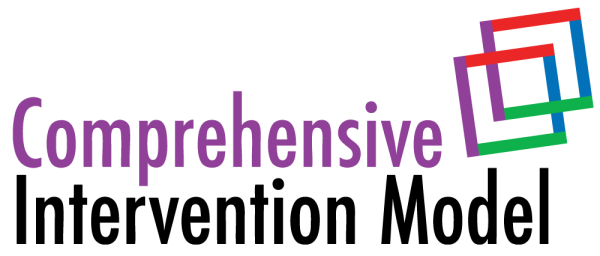
The Comprehensive Intervention Model (CIM) is a systemic approach to literacy improvement. Reading Recovery Teacher Leaders/CIM Coaches are viewed as agents of system change. CIM Coaches provide specialized training and ongoing professional development for intervention teachers/CIM Specialists who work with struggling readers in the primary grades, including Reading Recovery in first grade. CIM recognizes that reading and writing are complex, meaning-making processes. The goal of each intervention is to develop self-regulated, strategic readers and writers who are able to solve literacy problems with flexibility, efficiency, and understanding.
The CIM Intervention portfolios provide teachers with structured predictable lesson components and established routines for daily instruction. Dr. Linda Dorn (University of Arkansas-Little Rock) designed the framework to assist the CIM teachers in problem solving and decision making using data with selecting children’s books, prompting for strategies, and teaching for independence and transfer.
The CIM portfolio includes a collection of seven evidence-based interventions (Grades K-5) from Dr. Dorn’s Interventions that Work series:
- Reading Recovery
- Guided Reading Plus Group
- Assisted Writing – interactive writing group
- Assisted Writing – writing aloud group
- Writing Process Group
- Comprehension Focus Group – genre units of study
- Comprehension Focus Group – content units of study
For CIM Information, please contact Dr. Lindy Harmon at 859-257-7859

Research on Reading Recovery
Reading Recovery Boosts 1st Graders Reading, i3 Study Finds
By Sarah D. Sparks on March 22, 2016
By Liana Heitin. Originally posted at Curriculum Matters.
A new study of Reading Recovery, a 1-on-1 reading intervention program for 1st graders, found that the program had a significant positive impact on students’ reading achievement. The evaluation, conducted as part of a federal Investing in Innovation scale-up grant, analyzed reading performance for nearly 7,000 1st grade students at more than 1,000 schools over four years. Students were randomly assigned to either the treatment group, in which they received 30 minutes a day of 1-on-1 lessons taught by a trained Reading Recovery teacher, or a control group, in which they received their school’s regular interventions. Students participated in either condition for 12 to 20 weeks. The researchers, from the Consortium for Policy Research in Education at the University of Pennsylvania and the Center for Research on Education and Social Policy at the University of Delaware, looked at student performance on the Iowa Test of Basic Skills’ tests of reading comprehension and decoding, as well as an early-literacy screener used for Reading Recovery. They found that students in the treatment group significantly outperformed those in the control group. For total reading on the Iowa Test, the treatment group scored at the 36th percentile after the five-month period, while the treatment group scored at the 18th percentile. (All student participants were struggling readers to begin with.)
The growth rate for Reading Recovery participants was 131 percent of the national average growth rate for 1st graders.
Final independent research report finds i3 scale-up of Reading Recovery ‘highly successful’
Additional Research
USDE Agencies Reviews: https://readingrecovery.org/reading-recovery/research-evaluation/reviews-of-research/usde-agencies-reviews/
Florida Center for Reading Research: https://readingrecovery.org/wp-content/uploads/2016/12/fcrr_reading_recovery.pdf
How Much Evidence Is Enough Evidence? Richard Allington. (2005). The Journal of Reading Recovery, 4(2), 8-11.
